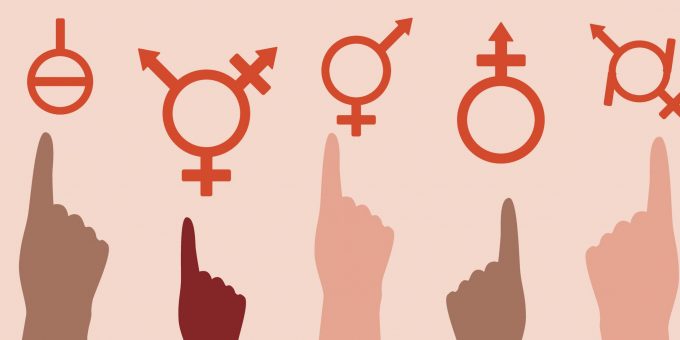
Does everyone have a gender?
When I asked Manisha to describe her gender identity, she gave a simple response: “meh.”
“I don’t have a gender identity,” Manisha explained. “I get that other people look at me and see a woman, but for myself, there’s a blank space where my gender ‘should’ be. My gender is ‘none.’”
Before this conversation with Manisha, I had been interviewing asexual individuals—those who experience low or no sexual attraction—across the United States for months, so Manisha’s response didn’t shock me. Like more than a third of the 77 people I interviewed in 2020 and 2021, Manisha was uncomfortable with defining herself through the lens of gender. She was, as I have come to describe it, detached from gender as a framework for defining herself.
In a study recently published in Socius, I draw on interviews with 30 asexual people who, like Manisha, felt uncomfortable adopting any gender identity. These individuals felt that gender was irrelevant, unimportant, pointless, and/or overall, just not a helpful framework for understanding and defining the self.When I began this research, I planned to compare the experiences of three groups: asexual men, asexual women, and beyond-the-binary asexuals. I quickly had to abandon that plan as I repeatedly encountered interviewees who did not place themselves in any gender category at all.
Ollia was the first such person I interviewed. “My gender is like an empty lot; there may have been a building there at some point, but it’s long since fallen away, and there’s no need to rebuild it,” Ollia explained, adding, “The space is better for being left empty.”
Many respondents struggled to articulate their intuitive feeling of being without a gender identity. As one respondent, Faye, explained, “There really isn’t a specific term that can be used to describe how uninterested I am in the concept of gender as a whole.” Faced with a language vacuum, I eventually coined the term gender detachment to describe these distant and skeptical relationships with gender.
“Gender detachment” might sound similar to an “agender identity,” which refers to not having a gender. However, most respondents drew a distinction between gender detachment and being agender. For example, when I initially asked Brandy about their gender identity, they said they were agender. When I asked how accurate that label felt, however, Brandy explained that although it was “handy” to say they were agender, the term ultimately felt incorrect. “A lot of people see gender as a spectrum, from pink to purple to blue to variants, and I’m a splotch of green on the frame,” Brandy explained. “I just don’t see myself in that spectrum, and so while ‘agender’ and ‘nonbinary’ are handy terms, they still work within a gendered framework that I don’t place myself in.”
Brandy’s comment subtly offers a profound insight: the assumption that everyone has a gender is so widespread that even the feeling of not having a gender (often described as being “agender”) has effectively been turned into a gender identity.
Against this backdrop, gender detachment poses a significant challenge to how we usually think about gender by challenging the assumption that everyone has a gender identity in the first place.
This challenge could deeply unsettle how we understand gender. Although sociologists broadly agree that gender is a social construct, we typically take this to mean that gender categories are socially constructed. But such an understanding fails to recognize that the system of gender categorization is itself a social construct.The concept of gender detachment resists the assumption that everyone does (and should) have a gender identity—an assumption I call compulsory gender.
It is perhaps not surprising that I encountered the phenomenon of gender detachment through research on asexuality. Asexuality challenges the assumption that everyone experiences sexual attraction—an assumption often referred to as compulsory sexuality. It makes sense that as asexual people begin questioning the universality of sexuality, some might also begin to question the universality of gender. As compulsory sexuality crumbles, so does compulsory gender.
Sociologists often reproduce compulsory gender in the ways we measure and ask questions about gender. Indeed, that was initially the case for my study. In each interview, I asked respondents for their gender identity. Almost all gave one. It was only later that I discovered these identity labels did not feel entirely accurate to many respondents. After asking respondents for their gender identity, I asked about their feelings about gender and how strongly tied they felt to their gender identity. With further probing, I discovered that a large share of my respondents felt detached from gender.
Today’s “progressive” view on gender is that we should avoid assuming what someone’s gender identity is. Perhaps tomorrow’s view will be that we should also avoid assuming someone has a gender identity in the first place.
Canton Winer is in the Department of Sociology and the Center for Women, Gender, and Sexuality Studies at Northern Illinois University. He studies gender, sexuality, and their absence.
